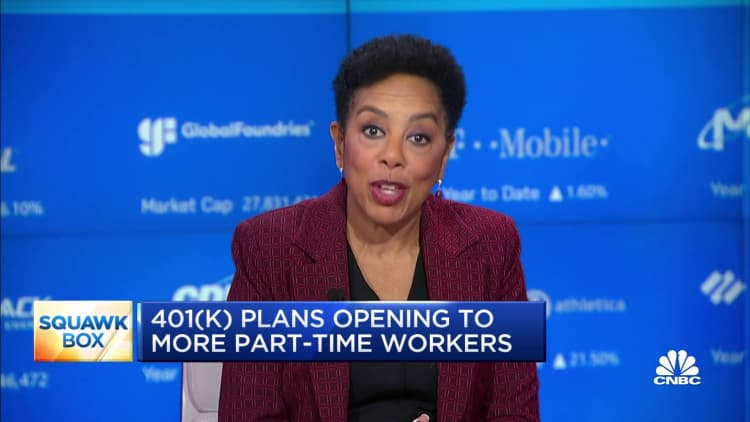Tom Werner | Digitalvision | Getty Images
If you left behind a small 401(k) plan account at a former job, odds are your former employer has moved those funds out of the plan. That move may hurt your retirement savings over the long term, experts say.
Current law allows employers to “force out” 401(k) accounts of $5,000 or less if their owners leave the company, perhaps for another job or due to a layoff. The smallest balances, less than $1,000, can be cashed out while the rest can be rolled to an individual retirement account.

Employers don’t have to do this, experts say.
They can choose to keep small balances in the plan; however, most do not. To that point, 72% of 401(k) plans don’t keep balances of $5,000 or less once a worker leaves, according to a survey by the Plan Sponsor Council of America.
Just 7.5% of plans keep old accounts regardless of size, according to PSCA data.
More from Personal Finance:
More retirement savers are borrowing from their 401(k) plan
Annuity sales are on track for a record year. What to know before buying
In your 40s, you still need a long-term approach for retirement savings
As more companies have chosen to automatically enroll new hires into their workplace 401(k), such plans have generally amassed more small accounts. Additionally, thousands of workers may have left behind small balances in the Covid-19 pandemic era. In 2022, a record number of workers quit their jobs during the “great resignation.”
Companies typically cash out balances smaller than $1,000, meaning account holders get a check, less any income tax and tax penalties owed. Accounts between $1,000 and $5,000 are generally rolled over to an IRA.
Why companies often roll out small balances
Investors should take action
However, there’s tension here. Investors may be better served keeping their money in the 401(k) plan.
If rolled over, 401(k) assets are often initially held in cash-like investments such as money market funds or certificates of deposit, until investors decide to invest those assets differently. There, they earn relatively little interest while also whittling away fees.
Additionally, those who get cashed out generally owe tax penalties if they are under age 59½. Their money is taken out of the tax-advantaged retirement system, denting their future retirement savings.
But there’s good news: Companies must issue notices to workers before forcing out a small balance. That means workers can take action before that happens.
Account holders “should do something” with those funds, Lander said.
“If a participant already has an IRA, the smartest thing would be to take that balance and roll it into an existing IRA or roll it into a new employer’s 401(k),” Lander added.
Don’t miss these stories from CNBC PRO:

